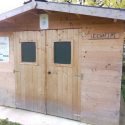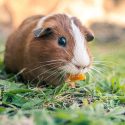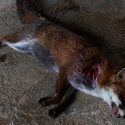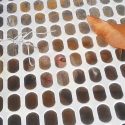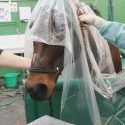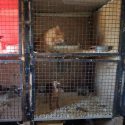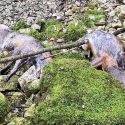Inauguration of the Chatipi at Cadillac Hospital Center on Friday, June 14, 2024
Inauguration of the Chatipi at Cadillac Hospital Center on Friday, June 14, 2024
02.06.2024
Gironde
Inauguration of the Chatipi at Cadillac Hospital Center on Friday, June 14, 2024
Domestic animals
One Voice, which has been fighting feline straying for many years, has set up three-way partnerships with municipalities or lively facilities, and local associations, to identify, sterilize and release homeless cats, providing them with a wooden chalet for hydration, food and shelter. The Chatipi program enables cats without a human family to reduce the suffering associated with their wandering.
To achieve this, the Cadillac Hospital Center in Gironde contacted One Voice.
The inauguration will take place at 11:30 a.m., in the presence of Mr. Luc Durand, Director of the Hospital Center, Dr. Nathalie Messer, President of the Establishment medical commission, and Mrs. Pascale Chevalier, Secretary-general of One Voice.
Chatipi, a lasting solution to the vicious circle of feline straying
Chatipi is not a cottage. It’s an ethically-driven plan designed to create spaces for stray cats in order to help them, while raising public awareness of their distress and needs.
Several Chatipis have already been set up near nursing homes, health centers and hospitals to provide comfort to residents. It was with this in mind that the Cadillac Hospital Center contacted One Voice. Since 2015, the structure has regularly carried out sterilization campaigns on its premises. While some cats have been able to be placed in families, several have died as a result of their precarious living conditions, despite the good care and food provided by hospital staff.
Indeed, life outdoors remains a painful experience for our feline companions, who fall ill far more often than those living with families, have to cope with the cold and bad weather, and sometimes even with human malevolence.
Without premises, it was difficult for the volunteers to centralize the cats, monitor their health and feed them. This is where Chatipi comes into its own.
Distribution of tasks and responsibilities
At present, around ten cats are still living on the hospital grounds.
One Voice, which invented the Chatipi concept, supplies the chalet and cat flaps, and pays for several kilos of kibble and veterinary expenses (sterilizations, identifications, tests) for 12 cats at the start of the project, as well as for the educational panel.
For its part, the Hospital Center laid the concrete slab and proceeded to assemble the chalet and decorate it in the form of activities with its patients.
For many years, the center’s staff have been responsible for feeding, trapping and transporting the cats to the veterinary clinic for treatment and sterilization.
Cats as a means of soothing patients
To soothe and enhance patients’ skills, the hospital has developed a number of projects involving animals. They were involved in setting up the chalet and feeding the animals. Patients in the ergotherapy workshop enthusiastically created crates to serve as shelters. They also made a CHATIPI wooden sign, which now hangs at the entrance to the chalet. Other patients from the FALRET unit created scratching posts. Other projects will gradually be proposed to patients.
The One Voice website dedicated to the Chatipi program provides a wealth of information about this educational program about cats.
Sign our petition calling for an emergency plan on feline straying.
